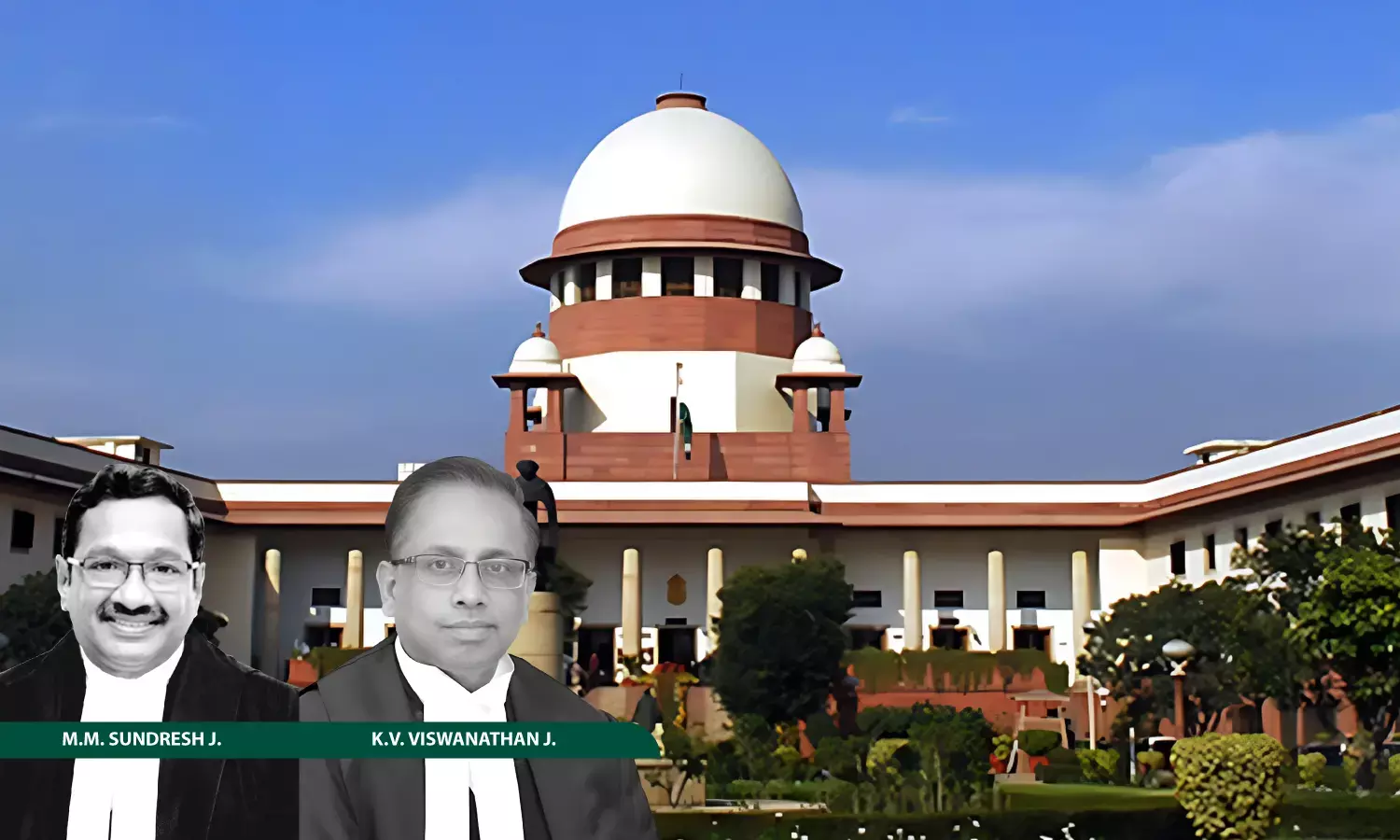Bona Fide Requirement For Occupation Of Landlord Must Be Liberally Construed; Requirement Of Family Members Also Covered: Supreme Court
The Supreme Court allowed a Civil Appeal against the Allahabad High Court's Judgment which confirmed the Appellate Authority’s Order directing eviction on the ground of bona fide need.

The Supreme Court reiterated that the bona fide requirement for occupation of the landlord must be liberally construed and the requirement of the family members is also covered.
The Court was hearing a Civil Appeal filed against the Judgment of the Allahabad High Court which confirmed the Appellate Authority’s Order directing eviction on the ground of bona fide need.
The two-Judge Bench comprising Justice M.M. Sundresh and Justice K.V. Viswanathan observed, “It is well settled that the bona fide requirement for occupation of the landlord has to be liberally construed and, as such, even the requirement of the family members would be covered.”
Senior Advocate Balbir Singh appeared on behalf of the Appellant while AOR Anand Varma appeared on behalf of the Respondents.
Factual Background
In 1952, the Respondents entered the suit property by virtue of a Lease Deed executed by the then owner of the property. The lease was for a period of 10 years and the predecessor-in-interest of the Appellant purchased the said property which was a Cinema building. A case was instituted in 1965 by the Appellant (deceased) seeking eviction under Section 7A of the U.P. (Temporary) Control of Rent and Eviction Act, 1947. An Order of eviction was made by the Additional District Magistrate which was confirmed by the Additional Commissioner. On a Revision filed, the tenants succeeded in getting the eviction order set aside by filing a representation before the State Government.
Though the Single Judge quashed the government order, the Division Bench reversed it and the Supreme Court confirmed the Division Bench’s Order. Resultantly, the proceedings came to an end and the tenants continued to occupy the premises. In 1975, the predecessor-in-interest of the Appellant filed a case under Section 21(1)(a) of the Uttar Pradesh Urban Buildings (Regulation of Letting, Rent and Eviction) Act, 1972. Thereafter, the Prescribed Authority ordered the eviction of the Respondent and directed payment of Rs. 72,000/- as compensation. The Respondent field an Appeal and the Appellate Authority discarded the finding of the Prescribed Authority. This was affirmed by the High Court and hence, the Appellant approached the Apex Court.
Reasoning
The Supreme Court in the above context of the case, said, “In this case, we have Section 21(7) additionally to reinforce the position. In the absence of any denial to the facts that Atul Kumar, the son of Murlidhar Aggarwal is crippled and has no other source of income or any other business, the need of the appellant has been clearly established in this case. Hence, the objection to the maintainability of the special leave petition is rejected.”
The Court added that the repeated reference to the alleged existence of other businesses of the Appellant does not carry the case of Respondents any further and that the bona fide need of the Appellant is clearly established.
“No doubt, Rule 16(2)(c) of the Rules of 1972 does mention that greater the existing business of the landlords own, the less the justification for allowing the application. It is also true that comparative hardship is to be appreciated under the proviso to Section 21(1)(a) of the 1972 Act. We have weighed the evidence on record and found that taking the case of the respondents at its highest, and even if we believe each and every averment of the respondents at best, the parties in financial terms could be said to be equally poised”, it further noted.
The Court remarked that the Respondents who own several businesses have managed to cling on to the premises for the last 63 years, after the expiry of the 10-year lease.
“In this case, nothing is on record to show that the tenant who has been in the premises for a total of 73 years with 63 years of them after the expiry of the lease, has made any attempt to seek any alternative accommodation and nothing is brought on record to show that he was unable to get one”, it also observed.
The Court concluded that in this case, nothing has been brought on record to show that the business of the Appellant’s family is so vast as to neutralize their bona fide claim to evict the Respondents from the suit property.
“We finally bring the “curtains down” on this long drawn out litigation concerning the cinema hall. … The respondents are granted time till 31.12.2025 to vacate the premises and to deliver vacant and peaceful possession of the suit premises, subject to the respondents filing the usual undertaking and clearing all arrears, if any, of rent/use and occupation charges, within 4 weeks from today”, it directed.
Accordingly, the Apex Court allowed the Appeal and set aside the High Court’s Judgment.
Cause Title- Murlidhar Aggarwal (D.) Thr. His LR. Atul Kumar Aggarwal v. Mahendra Pratap Kakan (D.) Thr. LRs. and Ors. (Neutral Citation: 2025 INSC 564)
Appearance:
Appellant: Senior Advocate Balbir Singh, AOR Soayib Qureshi, Advocates Naman Tandon, Shivali Shah, and Vedant Kohli.
Respondents: AORs Anand Varma, Ramendra Mohan Patnaik, Advocates Tarun Varma, and Apoorva Pandey.


